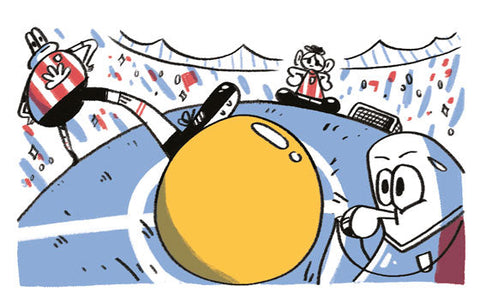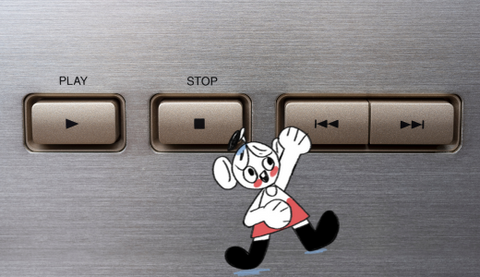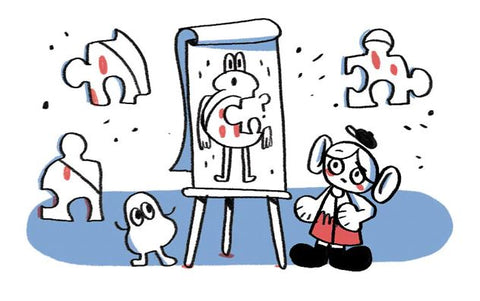A retrospective or ‘retro’ is a powerful tool to have tucked away in your pocket. Think about it: how many times have you finished up a project and then never thought about it again?
Until, that is… you repeat the same mistake in another project later on. Then you remember what you learned previously.
Retros help you turn those potential learnings into preventative action before the mistake gets repeated. They also help you celebrate people’s successes, which is great for morale.
You see, they’re not just for the end of projects. You can (and should) use retros at any point in time. For example:
-
When someone new joins the team
-
When something has gone horribly wrong
-
When a big change has occurred
-
And yes, at the end of a project
It’s wise just to set them up at regular intervals so your team gets into the habit of talking about their highs and lows.
But any recurring meeting can turn into a bit of a drag. The solution? Lots of cleve folk around the world have designed all kinds of retro formats. That means you never have to do the same retro twice! And you can choose precisely the right retro for the current moment in time. So let’s explore the right retro for a variety of situations.
Retros when someone new joins a team or project
Information about the challenges and successes you’ve recently experienced can be really helpful when you’re trying to get up to speed on a new project. If you’ve got someone new joining your team, choose a simple, positively framed retro that encourages discussion and appreciation.
For example, Rollercoaster or Balloon Ride (both in the Retros expansion pack) are great candidates. They do require a dash of flair when it comes to drawing the diagrams on the workspace, but that's part of the fun.
When something has gone horribly wrong
Hopefully you won’t need to use this type of retro often! But every now and then, you’ll have to gather your team to discuss a big flop. Depending on what you want to get out of the session, there are two potential approaches.
If you still need to work out what actually went wrong (and how to overcome the problem) then something like Fishbone (a root-cause analysis session, dressed up as a retro) or Keep, Problem, Try will give you insights and potential solutions.
But sometimes, you just need to put a fun spin on a frustrating situation. For that, give Superheroes a go. It turns the things that threaten to turn your project upside down into villains and paints you as the heroes trying to save the day. A refreshing way to think about an ultimately pretty rubbish situation!
When a big change has occurred
Not all big changes are things that have gone horribly wrong! Sometimes, projects have to change course. Mergers happen, new technologies disrupt the status quo, competitors do something completely out of left field.
In those cases, What? So What? Now What? is the obvious choice. First you define what actually happened, then the impact of that and final what needs to be done about it. Simple. Effective.
At the end of a project
Well, who could turn down an end-of-project Awards Ceremony? Celebrate the best idea, biggest breakthrough achievement and the worst bloopers with an unforgettable session. And the good news? If you can’t forget a blooper, you’re very unlikely to repeat it! There is method to this slightly over-the-top retro format.
Business as usual
And if none of these situations apply, you can use any of the retros mentioned above or try something else from the Retros expansion pack. Start off with the super simple Speedcar and work your way up to Team Radar or Team Values, or just pick one at random.
Some people will find some of the formats a bit gimmicky, while others will love them. You’ll be surprised at which retros inspire the most lively discussions – so give them all a try. And at the end of the year, you can run a retro on your retros (yes, seriously!) to see which ones your team liked best. Who knows, maybe you’ll even invent your own.
Feeling inspired? Grab a copy of Retros, the Workshop Tactics expansion pack, for step-by-step instructions for 15 fantastic retros.









